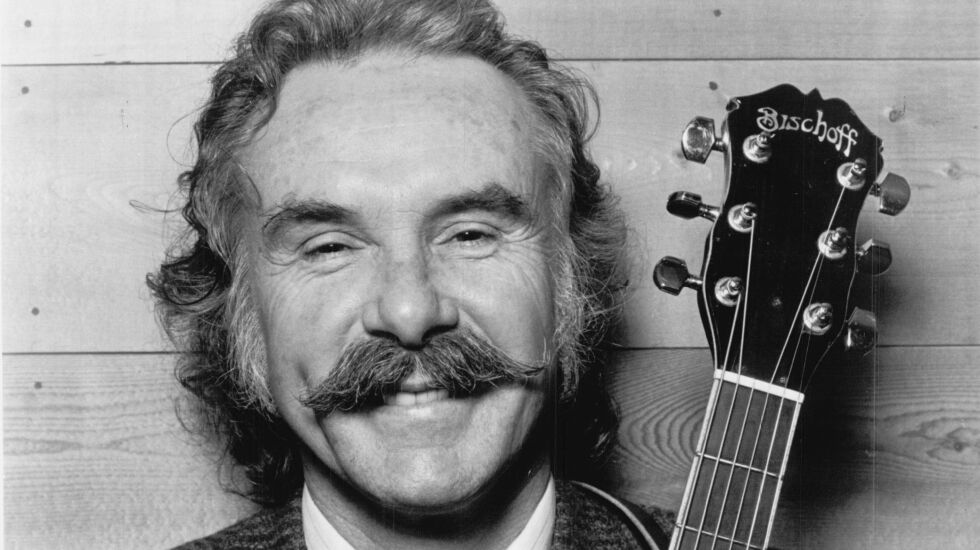
Jim Post was one of the most irrepressible stars of Chicago’s folk music scene in the 1970s and 1980s.
He could sing, act, write a hit song and plays, make you believe he was Mark Twain reincarnated, shred on his guitar and reach — and endlessly hold — the high notes with a ringing tenor that would raise goosebumps.
“He was a lovable imp on stage,” said theater producer Richard Friedman, a longtime friend. “He’d do anything to entertain.”
At the end of his shows, he’d tell the audience, “If you keep coming to see me, I’ll never get a real job.”
“He told his life story pretty much in any show,” said musician Randy Sabien, who toured the country and Canada with him.
When the singer first approached him about working together, “He exploded into the dressing room,” Sabien said. “That’s how Jim Post entered any room.”
Mr. Post, 82, died of heart failure Sept. 14 while in hospice care in Dubuque, Iowa, according to his friend Bob Postel, who said he had been in failing health for two years.
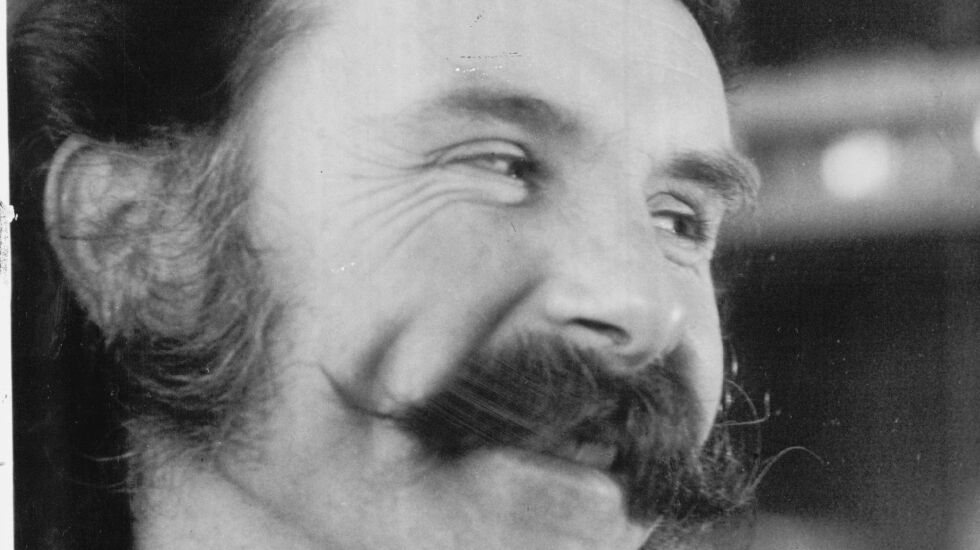
He made more than 20 records, most of them solo performances but one recorded with his first wife Cathy Post as Friend & Lover, in 1967, for which he wrote his one major hit song: “Reach Out of the Darkness.”
Produced by Joe South and Bill Lowery, its earnest flower-power lyrics have been used endlessly since then on TV soundtracks and in commercials to conjure the ’60s.
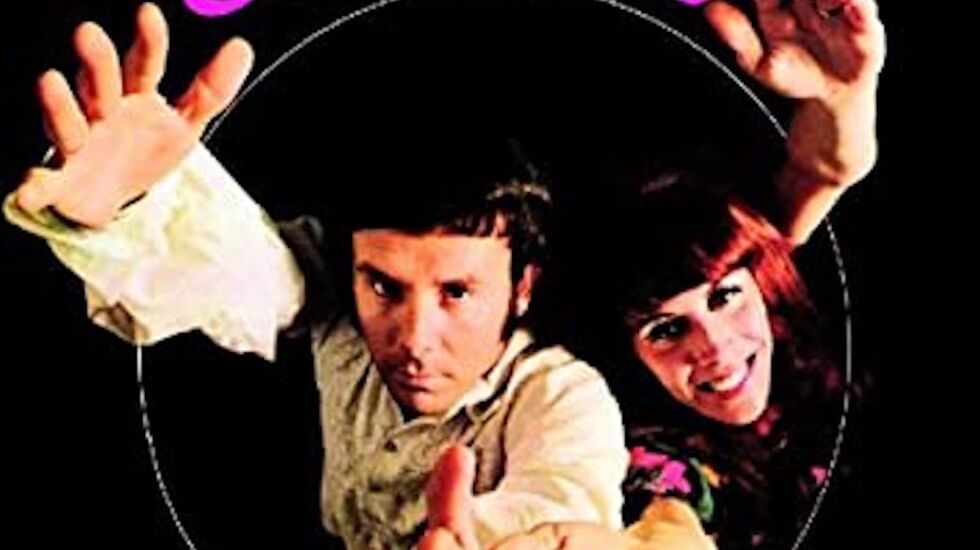
“Mad Men” featured the song in its season 6 episode “Man With a Plan.” Its chirpy refrain — “I think it’s so groovy now that people are finally getting together” — was used to jarring effect as the show ended with the assassination of Robert F. Kennedy.
It also was sampled in “People Come Together” by the group Len in the 2003 Steve Martin-Bonnie Hunt film “Cheaper by the Dozen.”
The Rock & Roll Hall of Fame has the song in its “One Hit Wonder” exhibition.
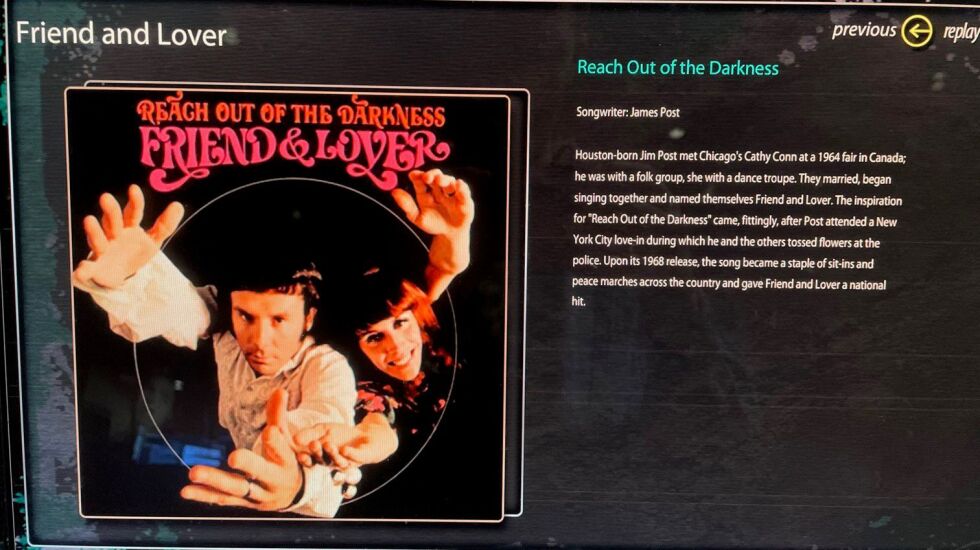
“Jim told me he got the idea for the song when he was at a festival and walking through a crowd and heard a guy say, ‘You know it’s so groovy now that people are starting to get together,’ ” said Lilli Kuzma, host of “Folk Festival” on the Glen Ellyn public radio station WDCB-FM.
The album cover and 45 read: “Reach Out of the Darkness.” But Friedman said the duo sang: “Reach Out in the Darkness.”
“The record company blew it,” Friedman said. “They gave it the wrong name — and that became the name that stuck.”
The hit earned Mr. Post “mailbox money” from royalties.
“He could go to the mailbox once or twice a year and have a hefty reward from that one song,” Sabien said.
The song has been performed nearly 1.9 million times on U.S. radio, according to Broadcast Music, Inc., a company that handles rights and royalties for songwriters.
Before forming Friend & Lover, Mr. Post played in Chicago with the Rumrunners, a Kingston Trio-like group, singer-songwriter Ed Holstein said.
He lived at various times in Chicago, San Francisco, a converted one-room schoolhouse in Stoughton, Wisconsin, and Galena, among other places.
He recorded or shared stages with performers including John Prine, Steve Goodman, Bonnie Koloc, Ed Holstein and Fred Holstein, Michael Smith, Bob Gibson, Anne Hills, Bill Quateman, Steve Wade and Ginni Clemmens. He opened for Cream and hung out with Janis Joplin and Jerry Garcia.
Friends say he also spoke of having had a brief meeting while in California with Charles Manson, when Manson was trying to break into music.
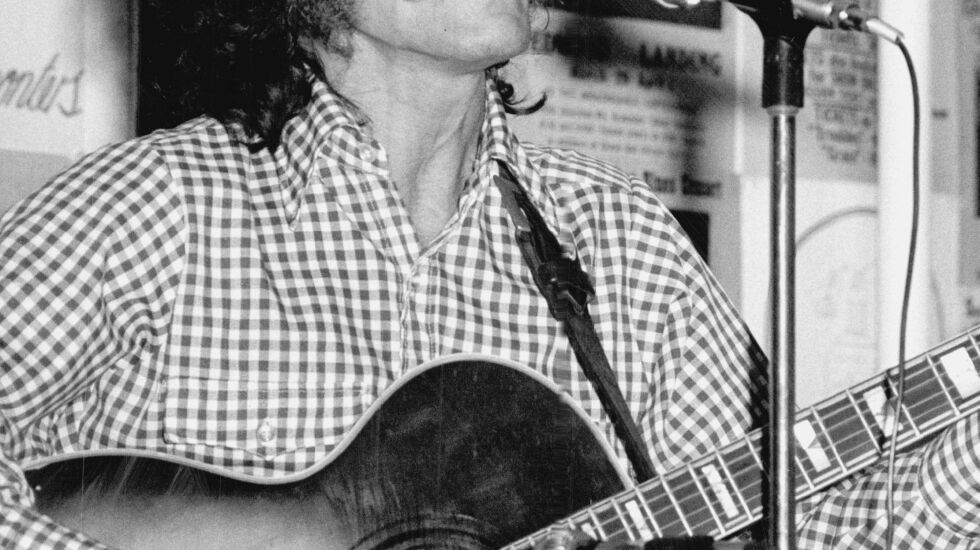
He regularly performed at venues including the Earl of Old Town, the Old Town School of Folk Music, Harry Hope’s in Cary and Amazingrace in Evanston, where, in 1978, he closed the place, playing the club’s final show alongside Goodman, Tom Dundee and Corky Siegel, the harmonica and piano-playing leader of Corky Siegel’s Chamber Blues.
Onstage, Siegel said, “He was a wildman. He was my favorite. I think he was just the greatest in the Chicago folk scene.”
“He was a consummate performer,” Ed Holstein said. “His energy was boundless.”
“He always performed with great enthusiasm and hit high notes few others could go for,” Koloc said. “Jim gave many people a lot of enjoyment over a long career.”
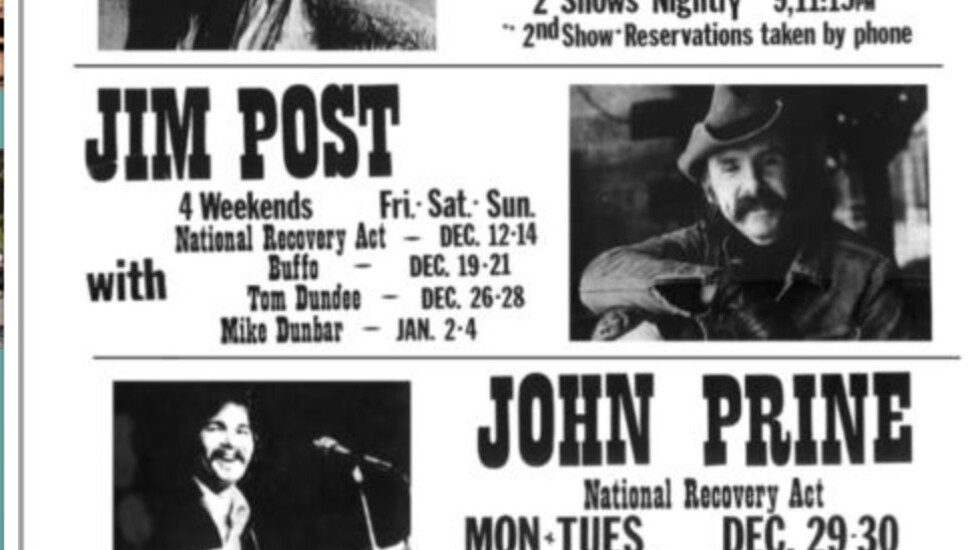
And he could riff about a piece of furniture onstage and make it “jaw-droppingly funny,” Sabien said.
Young Jim grew up on a farm in Harris County, Texas, about 20 miles outside Houston amid “piney woods and blackberry thickets,” he once said. Though his father had just a third-grade education, Mr. Post wrote about how the elder James Post would beguile the future singer’s mother with extemporaneous poetry:
“Driving down the road . . . with his family with his elbow out the window — drifting through his thoughts — he would start talking to mama. This is when he would be struck by the god of poetry and send my mother’s heart fluttering like a teenage girl. ‘Oh James,’ she would say, ‘You talk like a poet.’ And he would reply, ‘Ollie, don’t make fun of me,’ and she would slide across the beltless seat and whisper in his ear and lean her head on his shoulder. He loved her so that he let her tell him when he could go dancing with whiskey.”
Even when he was little, Jim Post’s talent was apparent.
“I was born with a range of 3 ½ octaves,” he said in a 1972 interview with the Chicago Sun-Times. “I was a rather successful evangelistic singer, playing over 500 churches around the country until I was 22.”
In another Sun-Times interview, he said: “I learned to sing by bein’ a Southern Baptist. My mother was a singer — just around the house but with a voice just as big as Mahalia Jackson’s. She’d sing doin’ the housework, with tears in her eyes, listenin’ to some fool preacher on the radio. And me milkin’ cows ‘bout 1200 yards down he line, singin’ harmony.”
By first grade, he’d won an all-school talent contest and scored a performance on the radio.
“The adoration he received from his fellow schoolmates upon his return to school shaped his life,” according to a biography for one of his plays.
For about 40 years, he lived in Galena, which inspired him to write his first one-man play, “Galena Rose: How Whiskey Won the West.” After a spell at the Civic Theatre at the Lyric Opera House, he walked in to the Organic Theater Company and landed a booking there. It was so successful it moved to the main stage, Friedman said.
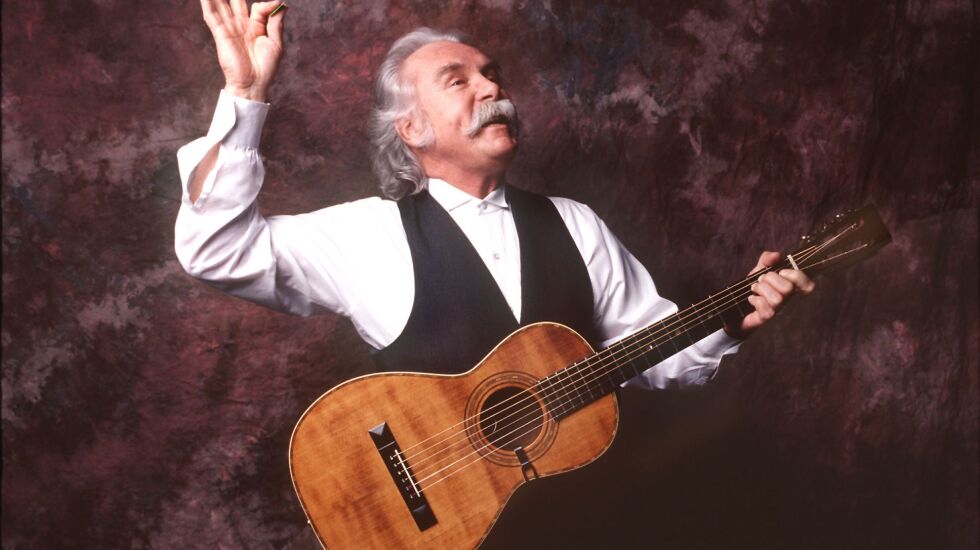
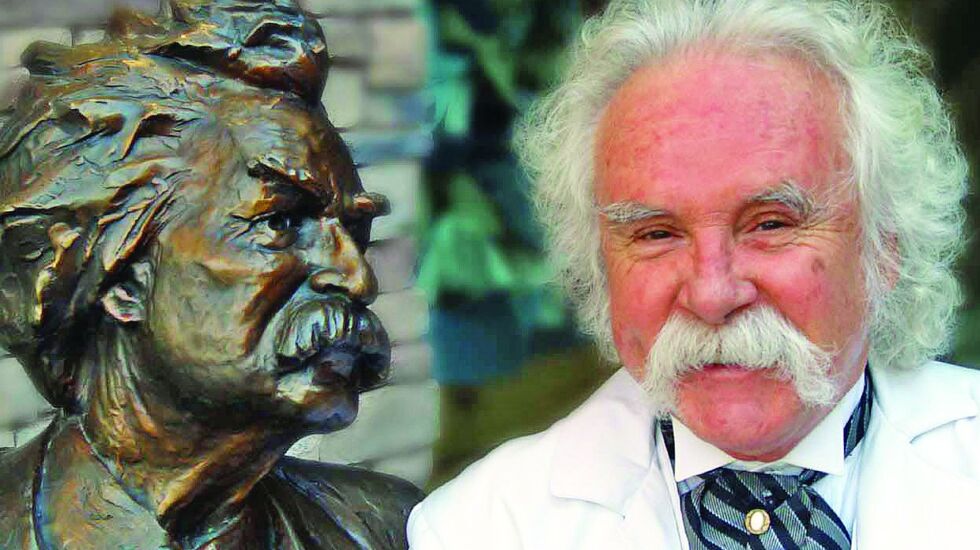
Proclaimed songwriter-laureate of Galena, Mr. Post reinvented himself in the later years of his career by portraying Twain onstage. He married his original songs with the humorist’s own words in two one-man musicals he wrote and performed: “Mark Twain and the Laughing River” and “Mark Twain’s Adventures Out West.”
He performed the plays thousands of times at venues including the Smithsonian Institution, the Guthrie Theater in Minneapolis and Vienna’s English Theatre in Austria.
His song “Mighty Big River,” from “Mark Twain and the Laughing River.” was featured in the 2002 Ken Burns film “Mark Twain.”
Mr. Post was always at home onstage. Once, spotting a friend from Chicago in the audience while performing in Jackson, Wyoming, he did a double-take but never broke character as Twain.
“I know you,” he said. “You’re a silver miner from Virginia City!”
At the Organic Theater Company, Mr. Post also did a popular show for children, the “Cookie Crumb Club,” with songs like “Frog in the Kitchen Sink” and “Jellyfish Jamboree.”
“Performing for kids,” he said in 1990, “is like performing for happy drunks.”
He also performed an original play, “The Heart of Christmas,” at the Lakeshore Theater, now the Laugh Factory, at 3175 N. Broadway.
In addition to “Reach Out of the Darkness” still being heard in the occasional TV commercial, he appeared in one himself, in the late 1980s, for Wendy’s hamburgers.
He had great memories of the legendary Chicago folk music scene. In 2013, after the death of Earl Pionke, owner of the storied Earl of Old Town, Mr. Post told the Sun-Times: “If I could step back in time, there is nowhere I would rather be than walking through the front door of the Earl of Old Town and hear Earl yell out ‘Post!’ and hug me so hard that I thought he was going to break my ribs.”
“He was married four times,’’ Postel said, “and I was his best man for three” weddings. “That was a standing joke. He’d say, ‘Bob’s always my best man.’ ”
A celebration of Mr. Post’s life will be held from noon to 7 p.m. Oct. 10 at Galena’s Turner Hall, according to his friend Lori Rische, with potluck food, BYOB and music. At 3 p.m. that day, a pastor is to do a tribute, and friends will tell stories, Rische said.
Friedman said he also hopes to organize a musical celebration in Chicago.
In his final moments, the singer was listening to “Three Soft Touches,” a song he’d written about the courtship of his grandparents Jeff and Louella Post and about Jeff Post’s death. He called it the “most sensitive song I ever wrote in my life.” It goes:
Grandpa’s last thoughts came straight from his heart
No words were heard in the quiet room
A worn-out old hand on a soft cotton dress
She cradled the hand like a rose bloom
Now that’s when the feeble fingers flickered
As if testing the heat of a warm open fire
A familiar touch for so many years
To touch one last time, to touch and go higher
To a city of light
A peaceful warm planet
A place where he had never been
With three soft touches on her leg he said “I love you”
Then my grandpa was lifted by the cold dark wind
Years ago while they were still courting
Three soft touches of a warm youthful hand
Their own private way to say that “I love you”
To bring them together in love’s gentle land
And Grandma didn’t move she sat by him quietly
Clear dark eyes, not one shining tear
Early the next morning, with the family at breakfast
A story of love she felt we should hear
She said “Oh how I loved our first ten years together
Your daddy, the girls, laughter and cheer
But I loved him no better
Than our last years together
I tell you I know why they’re called golden years
And your grandpa’s last thoughts came straight from his heart
I know you didn’t hear a word in the room
But the three soft touches on my leg
He said ‘I love you’
Then your grandpa took off like a hawk to the moon.”







